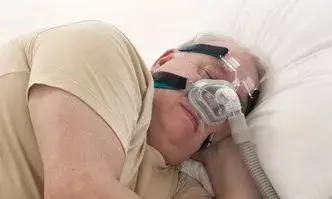- Home
- Medical news & Guidelines
- Anesthesiology
- Cardiology and CTVS
- Critical Care
- Dentistry
- Dermatology
- Diabetes and Endocrinology
- ENT
- Gastroenterology
- Medicine
- Nephrology
- Neurology
- Obstretics-Gynaecology
- Oncology
- Ophthalmology
- Orthopaedics
- Pediatrics-Neonatology
- Psychiatry
- Pulmonology
- Radiology
- Surgery
- Urology
- Laboratory Medicine
- Diet
- Nursing
- Paramedical
- Physiotherapy
- Health news
- Fact Check
- Bone Health Fact Check
- Brain Health Fact Check
- Cancer Related Fact Check
- Child Care Fact Check
- Dental and oral health fact check
- Diabetes and metabolic health fact check
- Diet and Nutrition Fact Check
- Eye and ENT Care Fact Check
- Fitness fact check
- Gut health fact check
- Heart health fact check
- Kidney health fact check
- Medical education fact check
- Men's health fact check
- Respiratory fact check
- Skin and hair care fact check
- Vaccine and Immunization fact check
- Women's health fact check
- AYUSH
- State News
- Andaman and Nicobar Islands
- Andhra Pradesh
- Arunachal Pradesh
- Assam
- Bihar
- Chandigarh
- Chattisgarh
- Dadra and Nagar Haveli
- Daman and Diu
- Delhi
- Goa
- Gujarat
- Haryana
- Himachal Pradesh
- Jammu & Kashmir
- Jharkhand
- Karnataka
- Kerala
- Ladakh
- Lakshadweep
- Madhya Pradesh
- Maharashtra
- Manipur
- Meghalaya
- Mizoram
- Nagaland
- Odisha
- Puducherry
- Punjab
- Rajasthan
- Sikkim
- Tamil Nadu
- Telangana
- Tripura
- Uttar Pradesh
- Uttrakhand
- West Bengal
- Medical Education
- Industry
nCPAP effectively reduces hypoxia among obese patients undergoing sedated endoscopy: Study

A new study published in the Clinical Gastroenterology and Hepatology journal found that the use of nasal continuous positive airway pressure (nCPAP) significantly lowers the risk of hypoxia in obese patients undergoing sedated upper gastrointestinal (GI) endoscopy, compared to standard oxygen delivery via nasal cannula (NC).
This study was conducted prospectively on 158 adults with a body mass index (BMI) of 30 kg/m² or higher to evaluate whether nCPAP could offer superior respiratory support during elective upper GI endoscopies performed under propofol sedation. Participants were randomized into two groups where one received standard oxygen supplementation through a nasal cannula, and the other received nCPAP throughout the procedure.
The primary endpoint was the incidence of oxygen desaturation, where the blood oxygen saturation (SpO₂) dropping below 90%. The results revealed that only 7.6% of patients in the nCPAP group experienced desaturation, when compared to 25.3% in the NC group.
Secondary outcomes also favored the nCPAP group. The patients using nCPAP maintained a higher minimum oxygen saturation during the procedure (97.1% ± 2.0) than those in the NC group (95.9% ± 2.7), with this difference also achieving statistical significance (p=0.007).
A multivariable logistic regression analysis identified patient age as a significant independent predictor of desaturation, with older patients more likely to experience hypoxia. Also, those receiving oxygen via nasal cannula were more than five times as likely to desaturate as those using nCPAP (odds ratio: 5.4; 95% confidence interval: 2.0 – 16.8).
Despite similar demographics between the two groups (average age 51 years, average BMI 42.7 kg/m², and a male-to-female ratio of 71:87), the improved outcomes with nCPAP suggest its potential to fill a critical gap in clinical care. Procedural success, patient tolerance, and adverse event rates were not significantly different between the two groups, which reinforced the safety and feasibility of nCPAP in this setting.
Overall, these findings highlight a practical and effective solution to a common and serious issue in obese patients undergoing sedation. Given the magnitude of the benefit and the simplicity of implementation, nCPAP should be strongly considered as standard practice for this population. Further research is encouraged to explore the use of nCPAP in other sedated procedures involving high-risk patients.
Source:
Hünerbein, K., Sprenger, C., Zöllner, C., de Heer, J., von Wulffen, M., Zimmermann, K., Rösch, T., & Issleib, M. (2025). Nasal CPAP to reduce hypoxia in patients with obesity undergoing sedated upper GI endoscopy: A prospective randomized trial. Clinical Gastroenterology and Hepatology: The Official Clinical Practice Journal of the American Gastroenterological Association. https://doi.org/10.1016/j.cgh.2025.06.015
Neuroscience Masters graduate
Jacinthlyn Sylvia, a Neuroscience Master's graduate from Chennai has worked extensively in deciphering the neurobiology of cognition and motor control in aging. She also has spread-out exposure to Neurosurgery from her Bachelor’s. She is currently involved in active Neuro-Oncology research. She is an upcoming neuroscientist with a fiery passion for writing. Her news cover at Medical Dialogues feature recent discoveries and updates from the healthcare and biomedical research fields. She can be reached at editorial@medicaldialogues.in
Dr Kamal Kant Kohli-MBBS, DTCD- a chest specialist with more than 30 years of practice and a flair for writing clinical articles, Dr Kamal Kant Kohli joined Medical Dialogues as a Chief Editor of Medical News. Besides writing articles, as an editor, he proofreads and verifies all the medical content published on Medical Dialogues including those coming from journals, studies,medical conferences,guidelines etc. Email: drkohli@medicaldialogues.in. Contact no. 011-43720751


